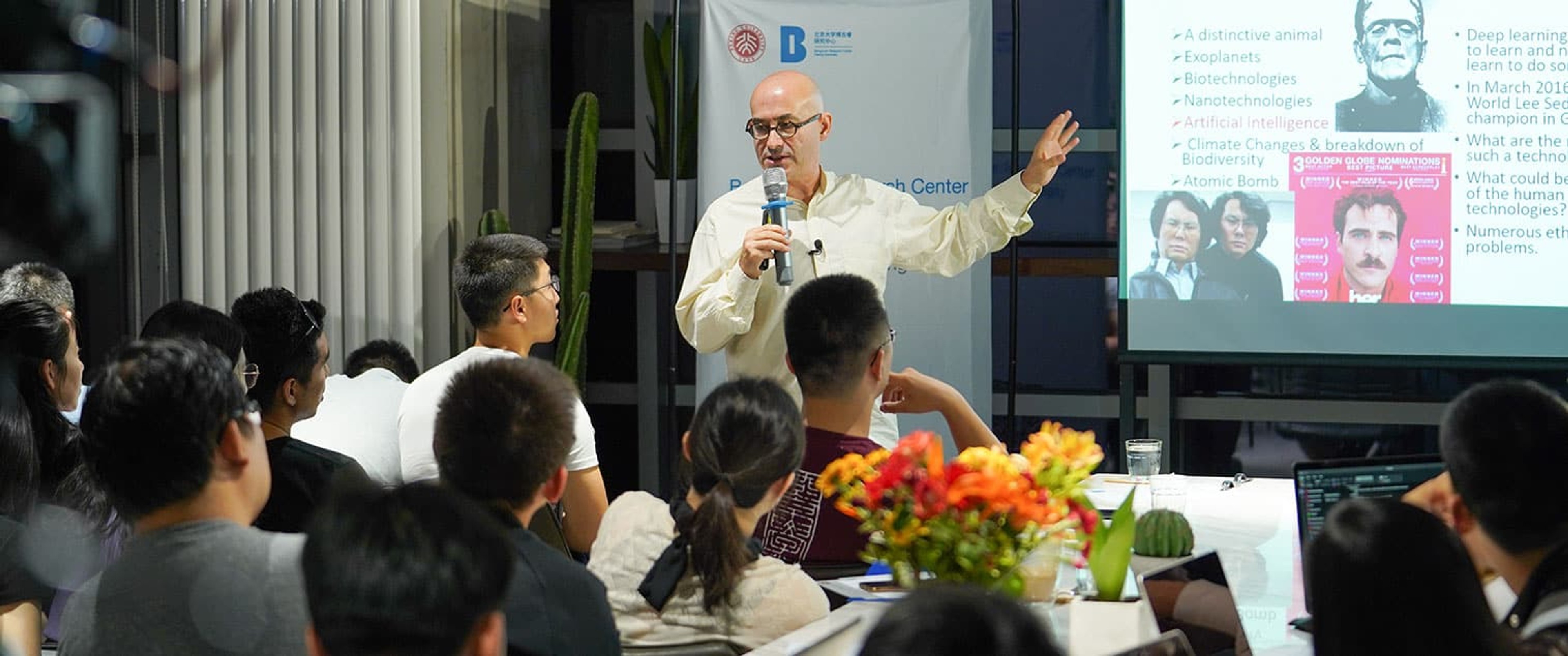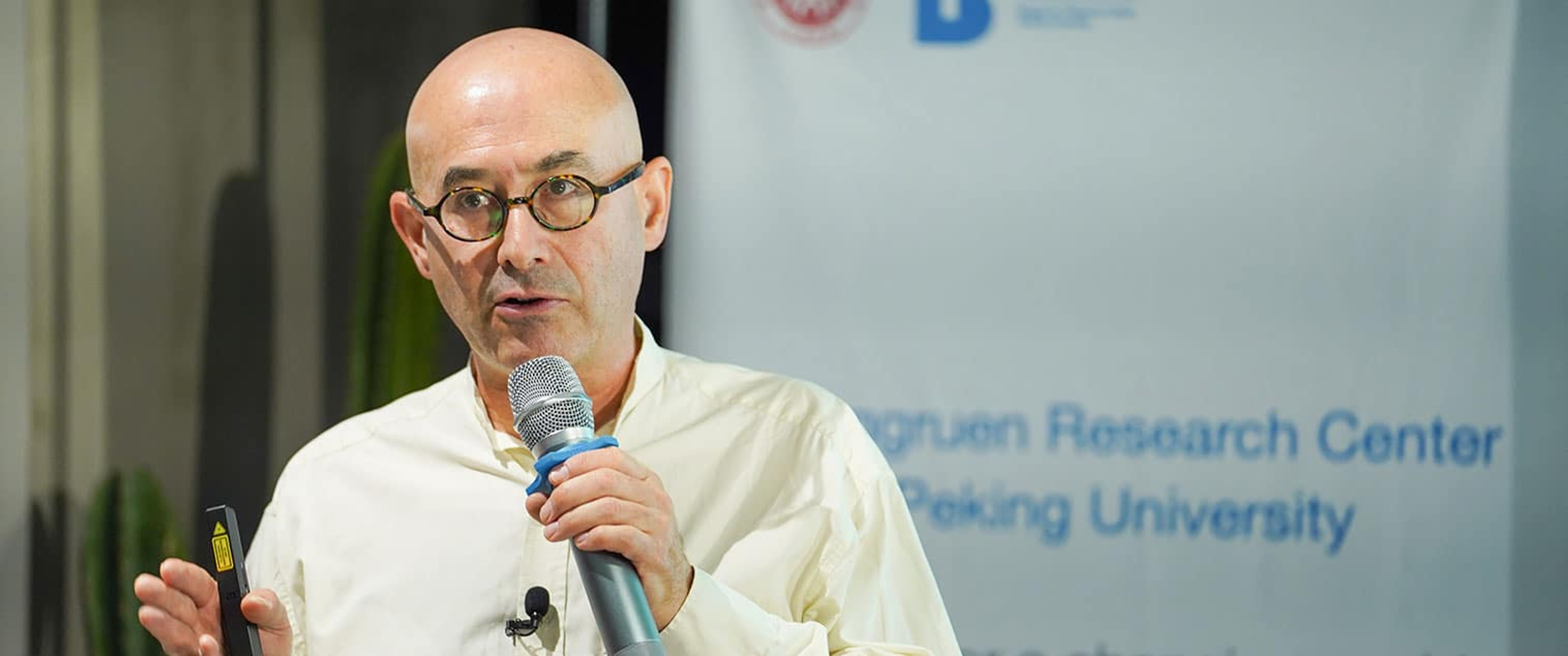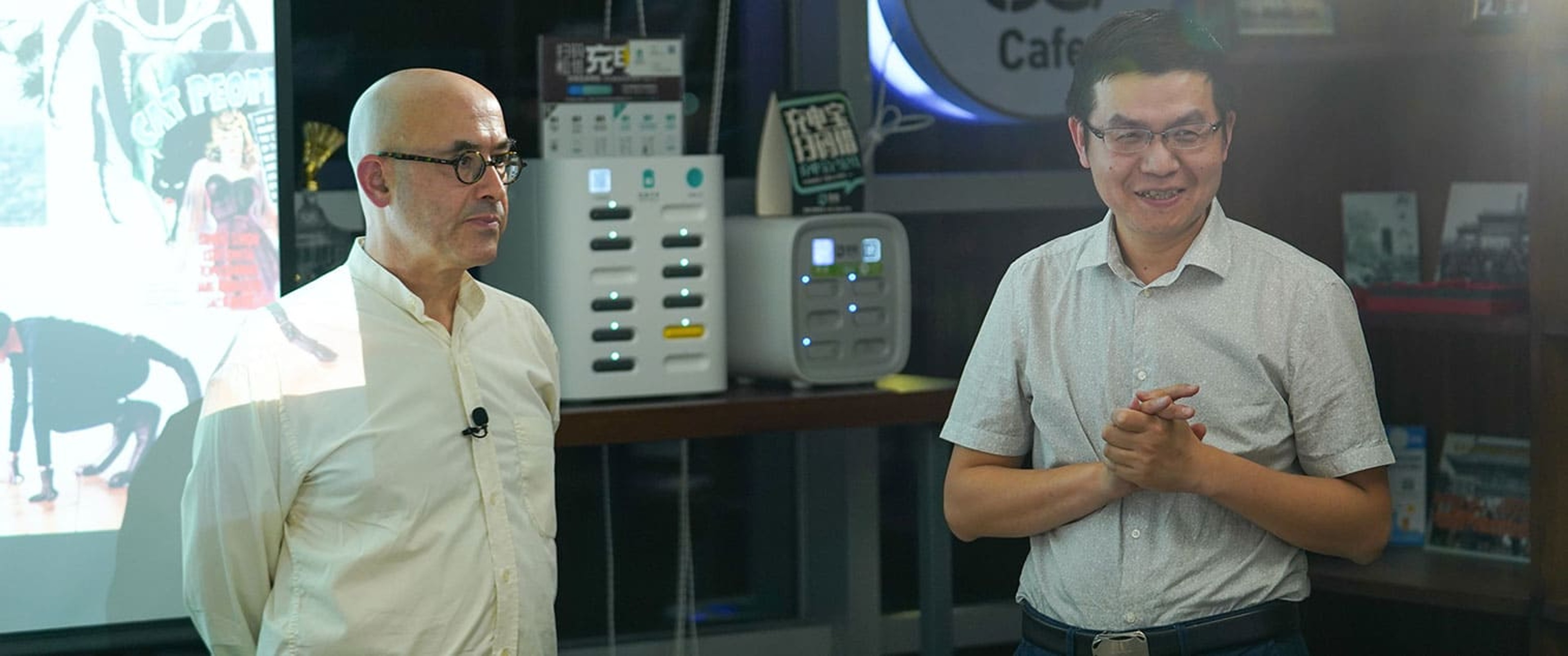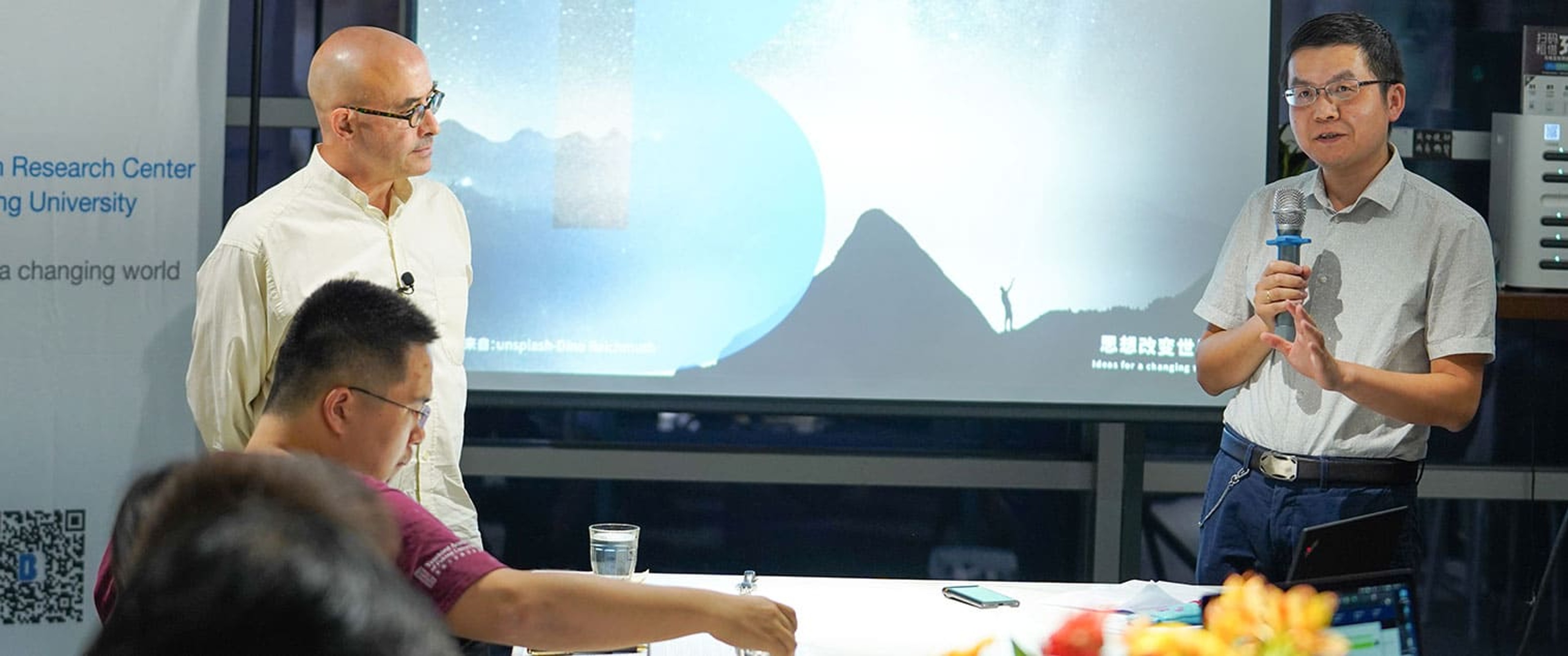Berggruen Seminar Series: Emerging Technologies, Disruptive Sciences and the Future of Humanity

Does science have a ‘destructive’ implications for the future understanding of humanity? This was part of the discussion which took place at the Berggruen Seminar Series, held at Peking University in mid-September. The event, titled “Emerging Technologies, Disruptive Sciences and the Future of Humanity,” thematically focused on the introspection of human identity in the long-term and recontextualizing human-animal relations from a philosophical perspective.
The talk was conducted by Dr. Dominique Lestel, a former Berggruen Fellow at the Stanford University Center for Advanced Studies in the Behavioral Sciences (CASBS), currently a professor teaching contemporary philosophy at the Ecole normale supérieure of Paris (ENS), and is a researcher at the Archives Husserl. The event was hosted by Dr. Wu Tianyue, 2019 – 2020 Berggruen fellow at Berggruen China Center, who is an associate professor at the Department of Philosophy and Religious Studies at Peking University.
Lestel began the session by asserting that contemporary philosophy was insufficient in describing how human nature would change with the advent of advanced technologies: he proposed philosophy be discussed “in the making” and not “as it is done.” This would include viewing the world as science-fiction to understand the convergence of human and machine (including nanotechnology, artificial intelligence) to find value outside classical interpretations.
Substantively, he believes science has a ‘destructive’ implication on future understanding of humanity and our role in the ontology of the universe. For example, through astronomy and the surprising discovery of exoplanets, we challenged thinking that placed humans at the center of the universe. In the same way the Cold War ended ‘surprisingly’ quick, he encouraged the audience to embrace surprise as part of the human condition.



Lestel then introduced three different schools of thought predicting the long-term future (10,000 years later) of human identity. First, the post-humanists who believe ‘humans’ as understood today would become obsolete through technologies that bestow immortality and supersede modern conception. Second, the humanists who think we as a species should place paramount value on protecting Earth and conserving its resources. Lastly, Lestel’s proposal, that pan-humanists, which is a convergence of humans and other living beings (such as animals), will allow future humans to both transcend and refine our innate humanity.
He believes society should begin thinking of emerging technologies, not as tools or as a prosthesis, but as opportunities for symbiosis and partnership. However, he highlighted cultural differences as an impediment to pan-humanism. In addition, he emphasized that a “lack of imagination” was also a constraint. Technology not only catalyzes the accomplishment of current goals (solving climate change, pandemics, proliferation), it also allows humans to envision grander ones.
Lestel proceeded to raise various examples of conceptions and technologies that challenge human identity: genetically, homo sapiens share 98.4% of genes with chimpanzees, but the 1.6% difference accounts for 48 million nucleotides—these seemingly minute differences have resulted in millennia-worth of cultural biodiversity and beliefs. Revisiting astronomy, he asked if there are over 3,815 exoplanets across 2,853 solar systems similar to ours, where are the extraterrestrials? Concerning AI: how do we as humans reconcile the numerous ethical and moral considerations with deep learning—how should we feel that AlphaGo beat Lee Sedol soundly in March 2016?
In this manner, Lestel challenged prospects for a post-humanist future: morally, do humans have the right to fundamentally alter humanity through technologies we don’t fully understand? Wouldn’t political and economic realities mean that only the wealthy receive the benefits of emerging technology? Citing Samuel Butler’s writings, he asked if it is possible to even prevent sentient technology from enslaving humans. Lestel also discussed the works of George Steiner to centralize the humanist opposition to post-humanism, i.e., the fear that mankind would destroy the world before we reached sufficient technological advancement.
In his final section, Lestel advocated a pan-humanist perspective, more specifically, the re-integration of humans and animals in embrace of our intrinsic animal instinct, called re-animalization. Lestel suggested adopting a mindset utilized by martial artists in Asia, in which they allow animals to inspire and guide their thinking. At a practical level, this would allow pan-humans to adapt and resolve issues such as climate change and space exploration. He also delineated aesthetic, ethical (empathizing with animals), and political (the creation of distinctive, even paradoxical species identities) justifications to re-animalization. He concluded his remarks by encouraging the audience to consider the future of humanity outside of traditional framings and use creative thinking from the ‘crossroads’ of philosophy, science, technology, and science-fiction to propel solutions and generate novel understandings of our species.